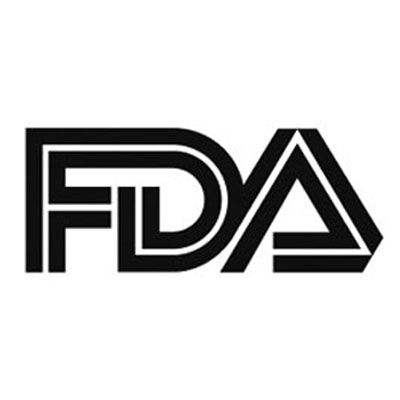FDA Approves Liquid Biopsy Companion Diagnostic for Multiple Indications
The FDA has granted approval to FoundationOne Liquid CDx, a comprehensive liquid biopsy assay for all solid tumors with multiple companion diagnostic indications.

The FDA has granted approval to FoundationOne Liquid CDx, a comprehensive liquid biopsy assay for all solid tumors with multiple companion diagnostic indications, which include rucaparib (Rubraca) tablets that were recently approved for the treatment of adult patients with metastatic castration-resistant prostate cancer (mCRPC) who harbor a deleterious BRCA mutation and had previously received androgen receptor (AR)-directed therapy and a taxane-based chemotherapy.1
Clovis Oncology, Inc, announced this update in a press release, stating that the assay is intended for use by health care professionals in order to to help inform cancer treatment decisions in accordance with FDA-approved labeling, as well as professional guidelines, for patients with solid tumors. The test will be used as a companion diagnostic for the identification of patients who may be able to benefit from specific FDA-approved targeted therapies, which include the first PARP inhibitor approved for the treatment of BRCA1/2-mutated mCRPC, rucaparib.
“Now that we have drugs that specifically benefit patients with BRCA mutations, the ability to identify who has these mutations is paramount,” said Celestia S. Higano, MD, of the University of Washington School of Medicine, in a statement. “In contrast to tissue biopsy, a liquid biopsy is a blood-plasma test that is less invasive than a tissue biopsy for assessing germline or somatic BRCA mutations. The FDA’s approval of liquid biopsy tests represents a significant advancement for clinicians and patients to make timely decisions about treatment options.”
According to results from the phase 2 TRITON2 study, the overall response rate was 46% (95% CI, 31%-65%) in BRCA-mutant patients determined by FoundationOne Liquid CDx compared with 44% in those determined by clinical trial assays (95% Ci, 31%-57%). This finding highlights the utility and consistency of liquid biopsy utilization for patient selection.
Rucaparib received FDA approval in May 2020 for the treatment of patients with a deleterious BRCA mutation (germline and/or somatic)-associated mCRPC who received prior AR-directed and taxane-based therapy, based on the results of the TRITON2 trial. The study explored the use of rucaparib in patients with mCRPC and determined that the prostate-specific antigen response rate was 52.0%.2
“Tumors with BRCA mutations are by far the most responsive to PARP inhibitors in mCRPC, and when we started development of Rubraca for mCRPC, we knew it was important to develop a plasma-based companion diagnostic for physician and patient ease of use,” stated Patrick J. Mahaffy, president and chief executive officer of Clovis Oncology.1 “What we could not have foreseen was how important a plasma-based test would be in this COVID-19 environment, in which even important procedures, such as tissue-based biopsies, can be difficult to schedule for patients. We are pleased that the FDA has approved a plasma-based companion diagnostic to identify mCRPC patients who may benefit from treatment with Rubraca.”
FoundationOne Liquid CDx is expected to become commercially available on August 28, 2020.
REFERENCES:
1. FDA approves FoundationOne liquid CDx to serve as Rubraca (rucaparib) companion diagnostic to identify eligible patients with BRCA1/2-mutant metastatic castration-resistant prostate cancer (MCRPC). News Release. Clovis Oncology. August 26, 2020. Accessed August 27, 2020. https://bit.ly/3gw7xBT
2. Rubraca® (Rucaparib) approved in the u.s. as monotherapy treatment for patients with brca1/2-mutant, metastatic castration-resistant prostate cancer (mcrpc) who have been treated with androgen receptor-directed therapy and a taxane-based chemotherapy. News Release. Clovis Oncology. May 15, 2020. Accessed August 27, 2020. https://bit.ly/3cC3SS0
cfDNA & CTCs for Early Detection, Treatment Monitoring, and Personalized Medicine
June 28th 2024The latest research on circulating tumor DNA and circulating tumor cells isolated through liquid biopsies is revolutionizing cancer care by enabling early detection, treatment monitoring, and personalized medicine strategies.
Read More
Liquid Biopsy HIC Proteomic Testing May Aid in NSCLC Treatment Decision-Making
September 2nd 2022In an interview with Targeted Oncology, David Oubre, MD discussed the use of liquid biopsy to identify prognostic and predictive biomarkers in patients with non–small cell lung cancer. He also explained the results and implications of the INSIGHT study.
Read More